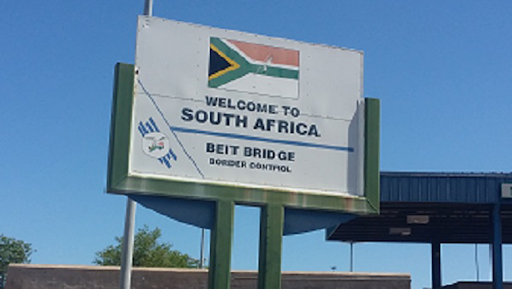Government says it has been awakened to the possibility of Coronavirus (COVID-19) spreading to Zimbabwe, with neighbouring South Africa having confirmed positive cases that shot to 61 Sunday evening, a development that has since been declared a national disaster.
To mitigate against probabilities, government officials are now making sure there is enhanced surveillance and detection at all Zimbabwean borders and airports.
The Ministry of Health and Child Care officials have also called on people to practice preventative measures which are now ‘priority number one’.
According to observers, Zimbabwe has a high importation risk of COVID-19 having close air and road traffic connections with South Africa while Matabeleland is most vulnerable to the arrival of the virus due to proximity, connection and volumes to the southern African country.
Zimbabwe is believed to have the highest number of migrants living and working in South Africa with some crossing illegally into that country while Beitbridge border is the biggest inland port in Southern Africa.
Based on this criterion, Matabeleland is more vulnerable with Beitbridge border handling huge volumes of both human and vehicular traffic amid high levels of border jumping.
Late Sunday evening, South African President Cyril Ramaphosa, declared that COVID-19 had become a “national disaster,” noting as well the virus had begun spreading inside that country.
In an interview with CITE, Spokesperson of the Zimbabwe Community in South Africa, Bongani Mkwananzi, commended the South African government for declaring the virus as a national disaster, which necessitated the need for people to be more alert.
“The Zimbabwean community largely works in service delivery from restaurants, garages, transport networks and many other such service relate industries and as per the South African President’s call, will also need to participate with unity of purpose to curb the spread of the virus.”
Bongani Mkwananzi.
So far, Zimbabwe is holding forte, having no positive cases of COVID-19, as several suspected cases have proved to be false alarms but this has not stopped people from asking questions if the country can cope with an outbreak.
With the Easter holiday coming up, fears have arisen that it is possible those Zimbabwean migrants working in South Africa who could have been exposed may want to come home, which could affect Matabeleland region.
Minister of Health and Child Care, Obadiah Moyo, acknowledged that what happened to South Africa, could also happen to Zimbabwe.
“We were saying, ‘if it comes’ but we can now equally say, ‘when it comes’ to Zimbabwe but we pray it won’t happen as a result of our full proof borders. It’s all in the borders and monitoring systems, implementing the 14 to 21 day follow-up, which we have to be very thorough in,” he said in a press briefing.
Moyo, who noted that the presence of COVID-19 in South Africa was ‘naturally a wakeup call for Zimbabwe, reiterated the country was doing all it could to prevent an outbreak.
“I continue to say I am not wishing for the country to have COVID-19 and nobody should wish that to happen. This is a very serious issue and it could end up being yourself who contracts it, not even from Zimbabwe but when you travel elsewhere.”
Minister of Health an Child Care, Obadiah Moyo.
“We want to continue having a COVID-19 free environment in Zimbabwe. We feel very sorry for South Africa, as it was not their intention to record positive cases.”
The health minister said steps had been taken to strengthen surveillance systems at Beitbridge Border Post, adding they were increasing the number of port health officials.
“We are really awakened by what has happened in South Africa and we are making sure there is thorough surveillance and thermos-detectors are working on a continuous basis at our borders and airports. We have also resuscitated improved airport committees, where guidelines and regulations have to be followed and ministry is also making sure to protect staff,” he noted
Moyo said officials had already put to test its systems as a result of “false alarms” raised locally.
“These have become experiences as we went through the whole drill, which became part of our training exercise,” he explained.
As of 13 March 2020 more than 9 700 travellers have been screened at Zimbabwean ports of entry and put on surveillance.
The National Microbiology Reference Laboratory has tested 14 suspected cases for COVID-19 and all were negative for the virus.
On spreading awareness in rural areas, the health ministry said it was working with UNICEF to educate people about preventative measures.
“As for rural areas we are working together with UNICEF and other local partners to come up with pamphlets and educate the general public. We are way ahead and by end of this week, we should be having additional pamphlets.”
Obadiah Moyo.
The health minister added that radio broadcasting would also be done in the local vernacular languages and text messages would be shared.
Meanwhile, South Africa said it would close 32 of its 72 ports of entry to minimise the continued spread of the coronavirus while random testing will be applied at all the taxi ranks and train stations.
African countries that include Ghana have issued travel bans, while others implemented strict screening at points of entry especially airports, as experts worry the virus may ravage countries with weak health systems and a population disproportionately affected by HIV, tuberculosis (TB) and other infectious diseases.

